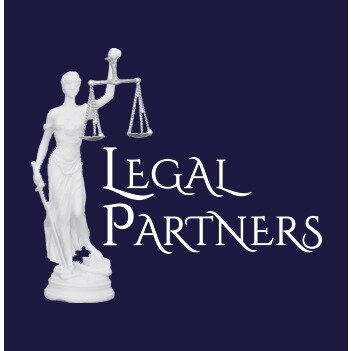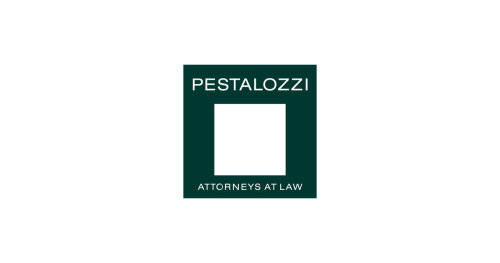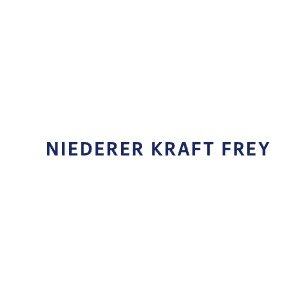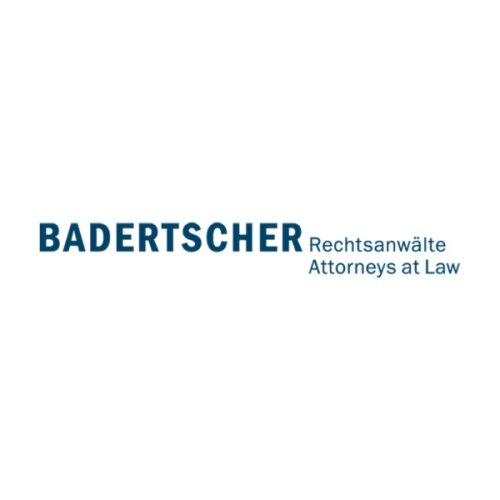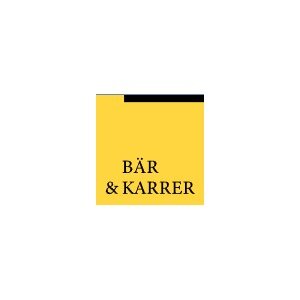Best ESG Advisory & Compliance Lawyers in Zurich
Share your needs with us, get contacted by law firms.
Free. Takes 2 min.
List of the best lawyers in Zurich, Switzerland
About ESG Advisory & Compliance Law in Zurich, Switzerland
Environmental, Social, and Governance (ESG) advisory and compliance law in Zurich, Switzerland is a rapidly growing legal field focusing on helping businesses operate responsibly and in alignment with international standards and local regulations. ESG practices are no longer just voluntary guidelines. In Zurich, companies are increasingly subject to legal requirements around environmental protection, social responsibility, and best governance practices. Legal advisors play a crucial role in helping organizations identify, understand, and comply with these evolving obligations.
Why You May Need a Lawyer
Several common situations may require specialized legal assistance in ESG advisory and compliance:
- Your business is seeking guidance on integrating ESG criteria into your operations or investment strategies.
- You are unsure how new Swiss or European Union ESG-related regulations apply to your organization.
- Your company is facing scrutiny from stakeholders, regulators, or the public regarding ESG performance.
- You require support with ESG reporting and disclosures, such as preparing sustainability reports or aligning with global frameworks.
- Your organization is involved in domestic or cross-border transactions where ESG due diligence is necessary.
- You want to minimize legal risks associated with non-compliance with ESG standards.
- You are navigating shareholder activism, employee concerns, or community questions relating to ESG matters.
Local Laws Overview
Zurich, as a leading Swiss financial hub, is subject to Swiss federal law and, in certain cases, European Union regulations and international standards. Key legal considerations in ESG advisory and compliance include:
- Swiss Code of Obligations: New provisions on non-financial reporting require large companies to publish annual reports on ESG topics, such as environmental issues, social and employee matters, human rights, and anti-corruption measures.
- Due Diligence for Conflict Minerals and Child Labor: Companies with a certain size or business profile must implement supply chain due diligence to mitigate risks around minerals sourcing and labor standards.
- Swiss Financial Market Supervisory Authority (FINMA) regulations: FINMA expects regulated financial institutions to integrate ESG risks into their risk management, investment and lending processes.
- International Standards and Voluntary Frameworks: Many Zurich-based companies abide by globally recognized ESG benchmarks, such as the UN Principles for Responsible Investment (PRI), the Global Reporting Initiative (GRI), and Sustainability Accounting Standards Board (SASB) guidelines.
- Swiss Climate Reporting Obligations: Publicly traded companies, banks, and insurers are required to publish climate-related financial disclosures in line with the Task Force on Climate-related Financial Disclosures (TCFD).
Frequently Asked Questions
What does ESG stand for in the context of Swiss law?
ESG stands for Environmental, Social, and Governance. It refers to a set of standards for a company’s operations that socially conscious investors use to screen potential investments, and that Swiss law now partially regulates in areas like reporting and supply chains.
Are ESG disclosures mandatory in Switzerland?
For large Swiss companies, ESG (non-financial) disclosures are mandatory. This includes details about environmental impact, social responsibility, employment practices, human rights, and anti-corruption measures.
Which companies are affected by the new ESG reporting obligations?
Reporting obligations generally apply to Swiss public companies, banks, insurance companies, and other economically significant entities that meet certain thresholds in terms of balance sheet total, annual turnover, or number of employees.
What are the penalties for non-compliance with ESG laws in Zurich?
Penalties can include fines, regulatory sanctions, damage to reputation, and civil or even criminal liability for severe violations, depending on the nature and severity of the non-compliance.
Does ESG compliance only apply to large corporations?
While the strictest regulations focus on larger firms, small and medium-sized enterprises may also be subject to specific supply chain, environmental, or anti-corruption rules, especially if they operate in regulated industries or supply larger companies.
How does Swiss law address climate risk reporting?
Certain financial and publicly listed companies in Switzerland must disclose climate-related financial risks and strategies, aligning their reports with international recommendations such as those of the Task Force on Climate-related Financial Disclosures.
Is ESG compliance relevant for companies outside the financial sector?
Yes, ESG laws and expectations apply across various sectors, including manufacturing, technology, retail, and services, particularly in areas relating to environmental impact, labor standards, and governance practices.
Can ESG compliance reduce legal or reputational risks?
Effective ESG compliance helps minimize regulatory, legal, and reputational risks, improving stakeholder trust and potentially leading to greater investment opportunities.
How do I know these ESG rules apply to my business?
A legal professional can assess your company’s structure, size, business activities, and supply chain to determine exactly which ESG laws and reporting obligations you must follow.
How often must ESG reports be prepared and published?
Typically, non-financial ESG reports must be published annually, detailing the previous fiscal year's activities and policies related to ESG criteria.
Additional Resources
The following organizations and bodies can provide further guidance on ESG advisory and compliance in Zurich, Switzerland:
- Swiss Financial Market Supervisory Authority (FINMA)
- Swiss Federal Audit Oversight Authority (FAOA)
- Swiss Confederation official portal (admin.ch) for laws and regulations
- Zurich Chamber of Commerce
- Swiss Sustainable Finance (SSF)
- SER (Swiss Business Federation for Corporate Responsibility)
- Non-governmental organizations such as Transparency International Switzerland and WWF Switzerland for sustainability and ethical business practices
- International frameworks like the UN Global Compact and the Global Reporting Initiative (GRI) for best practices and reporting guidance
Next Steps
If you believe your company requires legal assistance in ESG advisory and compliance in Zurich, consider the following steps:
- Identify your company’s current ESG policies and pinpoint areas of concern or uncertainty.
- Consult with a lawyer specializing in ESG advisory and compliance to assess your obligations under Swiss and international law.
- Gather all relevant company data, including current policies, supply chain documentation, and existing reports on sustainability practices.
- Review recommendations and prepare to implement policy updates or reporting procedures as advised by your legal professional.
- Stay informed about ongoing legal developments in the ESG field through reputable industry organizations and regular legal consultations.
Lawzana helps you find the best lawyers and law firms in Zurich through a curated and pre-screened list of qualified legal professionals. Our platform offers rankings and detailed profiles of attorneys and law firms, allowing you to compare based on practice areas, including ESG Advisory & Compliance, experience, and client feedback.
Each profile includes a description of the firm's areas of practice, client reviews, team members and partners, year of establishment, spoken languages, office locations, contact information, social media presence, and any published articles or resources. Most firms on our platform speak English and are experienced in both local and international legal matters.
Get a quote from top-rated law firms in Zurich, Switzerland — quickly, securely, and without unnecessary hassle.
Disclaimer:
The information provided on this page is for general informational purposes only and does not constitute legal advice. While we strive to ensure the accuracy and relevance of the content, legal information may change over time, and interpretations of the law can vary. You should always consult with a qualified legal professional for advice specific to your situation.
We disclaim all liability for actions taken or not taken based on the content of this page. If you believe any information is incorrect or outdated, please contact us, and we will review and update it where appropriate.





